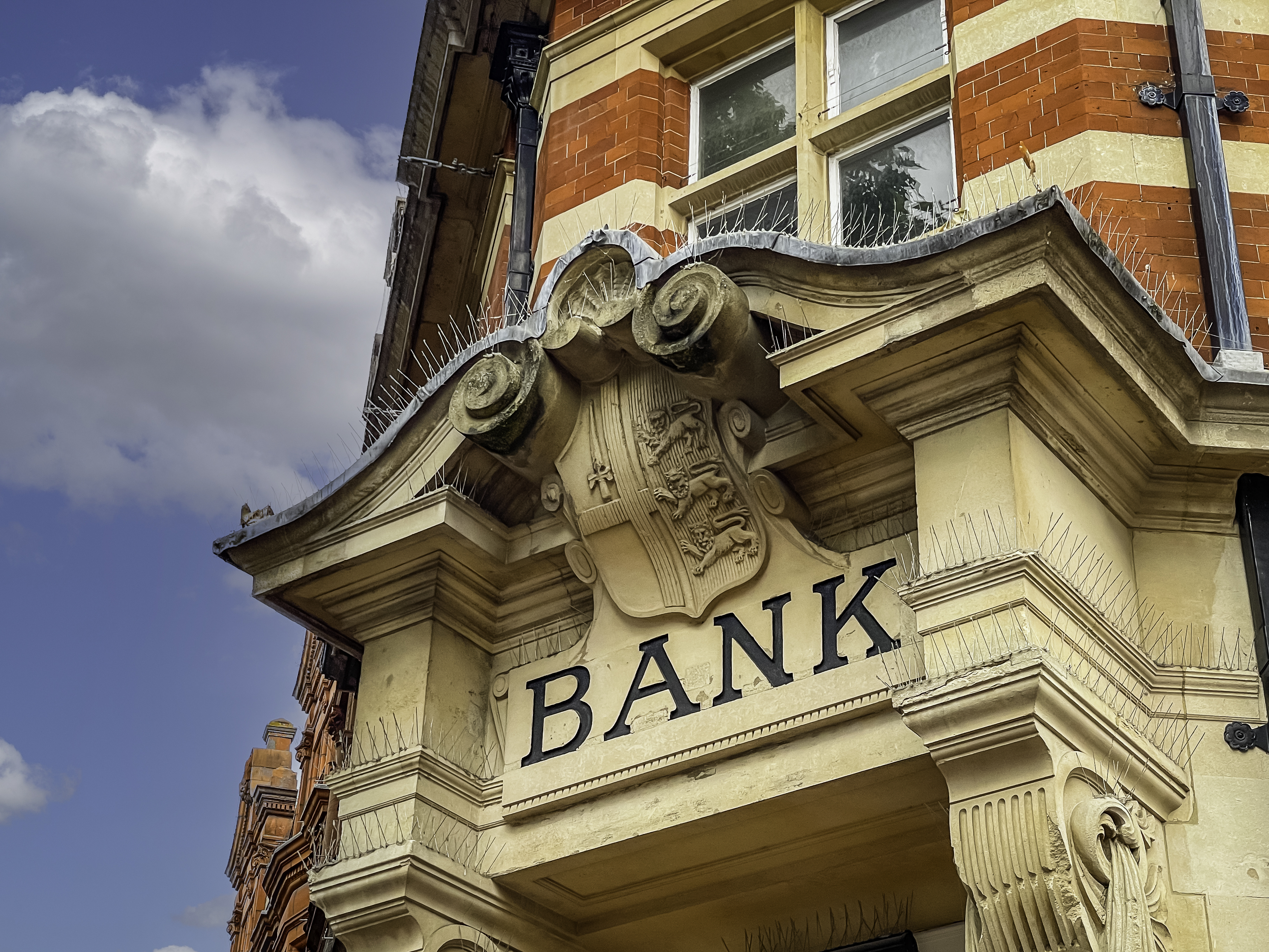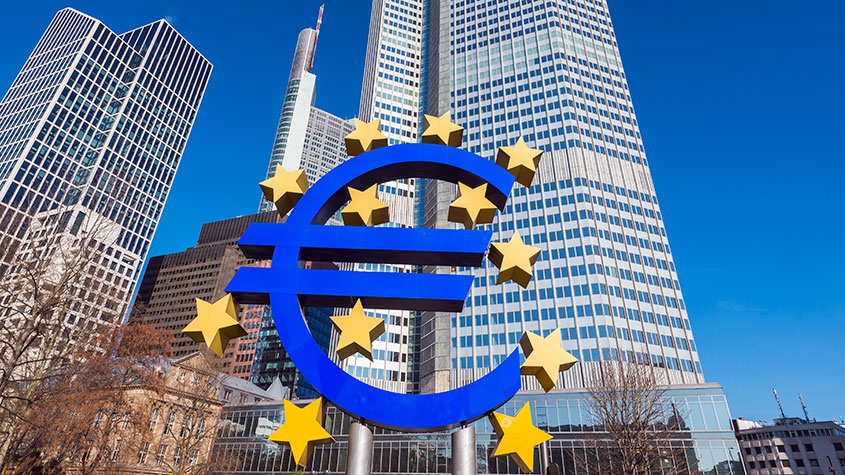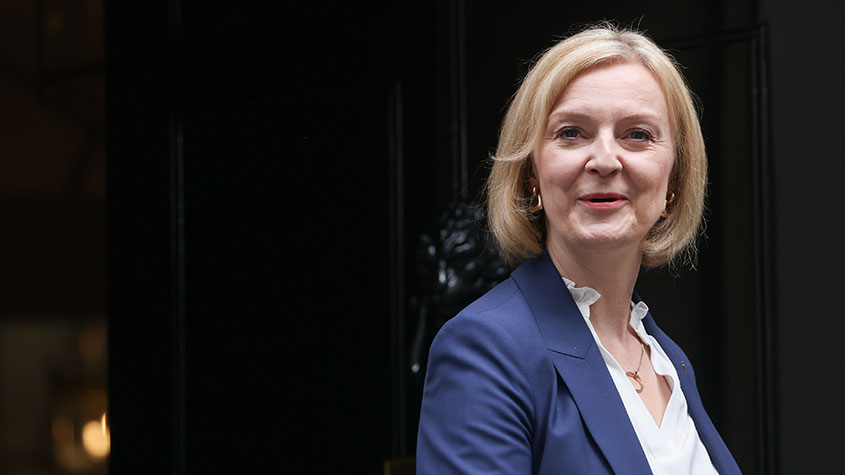Will Brexit make it harder to keep the lights on in Britain?
Matthew Partridge talks to energy consultant Clive Moffatt to find out how EU membership has affected the UK’s energy policy, and how Brexit is likely to affect it.

Get the latest financial news, insights and expert analysis from our award-winning MoneyWeek team, to help you understand what really matters when it comes to your finances.
You are now subscribed
Your newsletter sign-up was successful
Want to add more newsletters?

Twice daily
MoneyWeek
Get the latest financial news, insights and expert analysis from our award-winning MoneyWeek team, to help you understand what really matters when it comes to your finances.

Four times a week
Look After My Bills
Sign up to our free money-saving newsletter, filled with the latest news and expert advice to help you find the best tips and deals for managing your bills. Start saving today!

Energy may not be dominating the headlines at the moment, but many experts believe that, unless something is done, Britain faces looming shortages.
To look at how EU membership has affected UK energy policy, and how Brexit could change this, we've decided to turn to Clive Moffatt, one of the leading experts on the economics of the sector. Moffatt is head of consultancy and market research at Moffatt Associates, and has advised everyone from HSBC and GE to the EU Commission on energy. He currently heads up a coalition of UK energy companies that want to raise awareness of the looming problems.
The popular perception is that Brussels has always imposed regulation over the heads of an unwilling UK government. But this was not always the case. In the 1980s and 90s, "the UK energy market was regarded as the model for the rest of the EU", says Moffatt. For example, Britain "led the way on de-nationalisation, the removal of price controls, the establishment of an independent transmission network, the launch of retail supply competition and the creation of an independent industry Regulator". However, member states "have been reluctant to let energy policy slip from their grasp" so "the vision of a single energy market is very unlikely to be realised".
MoneyWeek
Subscribe to MoneyWeek today and get your first six magazine issues absolutely FREE

Sign up to Money Morning
Don't miss the latest investment and personal finances news, market analysis, plus money-saving tips with our free twice-daily newsletter
Don't miss the latest investment and personal finances news, market analysis, plus money-saving tips with our free twice-daily newsletter
How the EU has shifted the goalposts
Over the past two decades, European policy has shifted from liberalisation to focusing on cutting carbon emissions. In pursuit of these targets, "member states have often pursued individual and often conflicting policies such that across the EU, markets have ceased to function". Meanwhile, "a myriad of subsidies and penalties has led to a huge hike in energy costs for all consumers". Indeed, Moffatt thinks that the "ambitious" targets to cut CO2 emissions by 80% from 1990 levels by 2050 that were agreed by all EU governments in 2008, "may need to be postponed and much greater emphasis placed on ensuring security of supply and minimising the cost".
As well as setting unrealistic targets, Brussels has tilted the playing field towards wind and solar, which have low marginal costs. In practice this means that, "the wholesale electricity market no longer generates high enough prices over a long enough timespan to support any new investment in gas or nuclear generation", argues Moffatt. As a result, "no new generation of any kind can be built without some form of government intervention". In contrast, says Moffatt, Brexit will "allow the government to adopt a more cohesive and longer term approach to the question of subsidies and CO2 pricing which is in the best of interests of the environment, industry and consumers".
The situation is further complicated by state aid regulations, "which mean that governments cannot distinguish between different types of generation or be seen to favour new over old technology". Under the current system, old gas, nuclear and coal plants get generous payments for shutting down, but cleaner and more efficient gas plants still find it uneconomical to produce enough to make up for the lost output and "keep the lights on when the wind is not blowing or the sun is not shining". If these rules were relaxed, Moffatt believes, the UK would be able to invest in enough diesel and gas generation to fill the gaps.
But it's not all Brussels' fault
Of course, Brussels can't be blamed for everything. While it is an "inescapable fact" that renewable energy is more expensive that conventional sources, the UK government has chosen to push most of the cost onto industry, rather than follow Germany, which has shielded its firms. Still, Brexit will allow the government to devise "a fairer and longer term period of adjusting to a low carbon economy" by reforming the capacity market and "placing less emphasis on direct subsidies for renewable energy". Combined with tax breaks for heavy industry and poorer consumers, this would "help restore the role of the market in energy policy, an approach that has to date been constrained by EU rules" says Moffatt.
Moffatt accepts that by itself, Brexit won't solve our problems, as the struggle "to square the circle of low emissions, security of supply and affordability will continue". Indeed, "the EU Single Energy Market sets down cross-border trading codes and standards and it would be sensible to keep these in place so that gas and power can be traded on the same basis either end of the pipeline". If we leave the single market "then alternative trading arrangements will need to be put in place with Norway, Belgium, Ireland, France and the Netherlands".Similarly, any post-Brexit immigration restrictions must not worsen the current shortage of engineers.
What leaving the EU will do is "remove the current restrictive measures and release our ability to devise the best mix of policies" including needed reforms that "restore the operation of the UK energy market". There is no reason to be pessimistic about our ability to turn things around, says Moffatt, when you remember that we originally "led the way with energy market reform".
Get the latest financial news, insights and expert analysis from our award-winning MoneyWeek team, to help you understand what really matters when it comes to your finances.

-
 Should you buy an active ETF?
Should you buy an active ETF?ETFs are often mischaracterised as passive products, but they can be a convenient way to add active management to your portfolio
-
 Power up your pension before 5 April – easy ways to save before the tax year end
Power up your pension before 5 April – easy ways to save before the tax year endWith the end of the tax year looming, pension savers currently have a window to review and maximise what’s going into their retirement funds – we look at how
-
 No peace dividend in Trump's Ukraine plan
No peace dividend in Trump's Ukraine planOpinion An end to fighting in Ukraine will hurt defence shares in the short term, but the boom is likely to continue given US isolationism, says Matthew Lynn
-
 Europe’s new single stock market is no panacea
Europe’s new single stock market is no panaceaOpinion It is hard to see how a single European stock exchange will fix anything. Friedrich Merz is trying his hand at a failed strategy, says Matthew Lynn
-
 FCA tells banks to speed up savings rate increases
FCA tells banks to speed up savings rate increasesRecord profits and low savings rates spurred the FCA to meet with some of the UK’s top banks.
-
 Britain’s inflation problem
Britain’s inflation problemInflation in the UK appears to be remaining higher for longer when compared with similar rich countries. Why? And when can we expect a return to normal? Simon Wilson reports.
-
 Why did SVB collapse and what does it mean for investors?
Why did SVB collapse and what does it mean for investors?News California-based Silicon Valley Bank collapsed seemingly overnight, casting doubts over the future of thousands of tech and science startups in the US and the UK.
-
 Eurozone inflation hits 10.7% in October
Eurozone inflation hits 10.7% in OctoberNews Inflation across the eurozone hit 10.7% in October. What does it mean for your money?
-
 A forgotten lesson on the dangers of energy price caps
A forgotten lesson on the dangers of energy price capsAnalysis Liz Truss’s proposed energy price cap is an ambitious gamble. But a similar programme in Spain ended up being a fiasco, say Max King and Tom Murley. Here, they explain why Truss’s plan could be doomed to failure.
-
 Don't be scared by economic forecasting
Don't be scared by economic forecastingEditor's letter The Bank of England warned last week the UK will tip into recession this year. But predictions about stockmarkets, earnings or macroeconomic trends can be safely ignored, says Andrew Van Sickle.